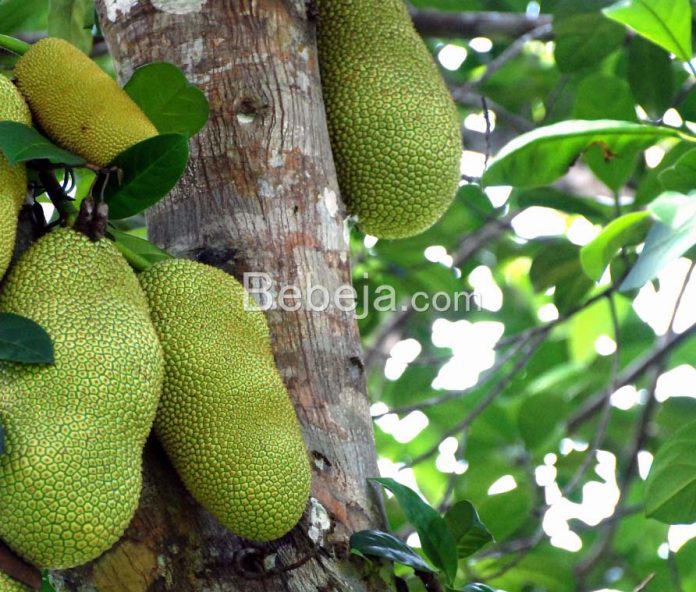Malaria has typical symptoms such as chills, shivering, and prolonged fever. In addition to the Plasmodium falciparum parasite, which is transmitted by anopheles mosquitoes, the parasites Plasmodium vivax, P. malariae, and P. ovale are also responsible.
Red blood cells exposed to malaria parasites usually rupture, and the toxins released by the parasite cause chills. Long-term damage to red blood cells from malaria can affect the condition of the liver and spleen.
The bark of Artocarpus champeden can tame parasites that cause malaria such as Plasmodium falcifarum. Research on the efficacy of cempedak bark was conducted by Dr Aty Widyawaruyanti of the Faculty of Pharmacy, Airlangga University in Surabaya, East Java.
The parasite becomes benign thanks to several chemical compounds in the bark of the cempedak stem. For example, artocarpone compounds A and B, which have been found in research, can boost the body’s immune system, making it difficult for parasites to move.
Similarly, the presence of flavonoid compounds that act as antiparasitic. The ability of cempedak bark (cempedak bark can also be used as food by processing it into mandai or dami, which is fruit skin soaked in salt water and then fried or stir-fried) to overcome malaria is even better than the use of chloroquine as a malaria drug, which is starting to become resistant. How to consume is done by boiling the bitter skin of cempedak stems.
Antimalarials are drugs used to treat or prevent malaria infection, a disease caused by the Plasmodium parasite and transmitted by the bite of an anopheles mosquito. Antimalarial drugs work by killing or inhibiting the development of parasites in the body. There are several types of antimalarial drugs, both over-the-counter and those that require a doctor’s prescription. Here are some malaria medicines:
A. Dihydroartemisinin-Piperaquine (DHP): This medication is a combination of two antimalarial drugs, namely dihydroartemisinin and piperaquine. This drug is effective for treating malaria caused by Plasmodium falciparum, including those resistant to chloroquine. The drug is usually taken for three days.
B. Primaquine: This medication is used to treat malaria caused by Plasmodium vivax or Plasmodium ovale, which are types of parasites that can survive in the liver and cause disease recurrence. This drug may also be used to prevent malaria in people who will travel to malaria-endemic areas. The medicine is taken for 14 days.
C. Doxycycline: This drug is an antibiotic that can be used to treat or prevent malaria, especially those resistant to chloroquine or pyrimethamine sulfadoxine. The drug works by inhibiting protein synthesis in the parasite. The drug is taken once daily at a dose of 100 mg, starting one or two days before going to 4 weeks after returning from malaria-endemic areas.
D. Mefloquine: This drug is used to treat or prevent malaria, especially those resistant to chloroquine. The drug works by disrupting the cell membranes of the parasites. The drug is taken 1 time a week at a dose of 250 mg, starting 1-2 weeks before leaving malaria-endemic areas until 4 weeks after returning.
E. Atovaquone-Proguanil: This drug is a combination of two antimalarial drugs, namely atovaquone and proguanil. These drugs are effective in treating or preventing malaria, especially those resistant to chloroquine or mefloquine. The drug works by inhibiting enzymes that are important for parasites. The drug is taken once a day, starting 1-2 days before leaving malaria-endemic areas until 7 days after returning.
F. Kina: This drug is extracted from the bark of the quinine tree. This drug is used to treat malaria that is resistant to other drugs, especially those caused by Plasmodium falciparum. The drug works by interfering with the metabolism of the parasites. The drug is taken 3 times a day and can be combined with doxycycline or tetracycline.
